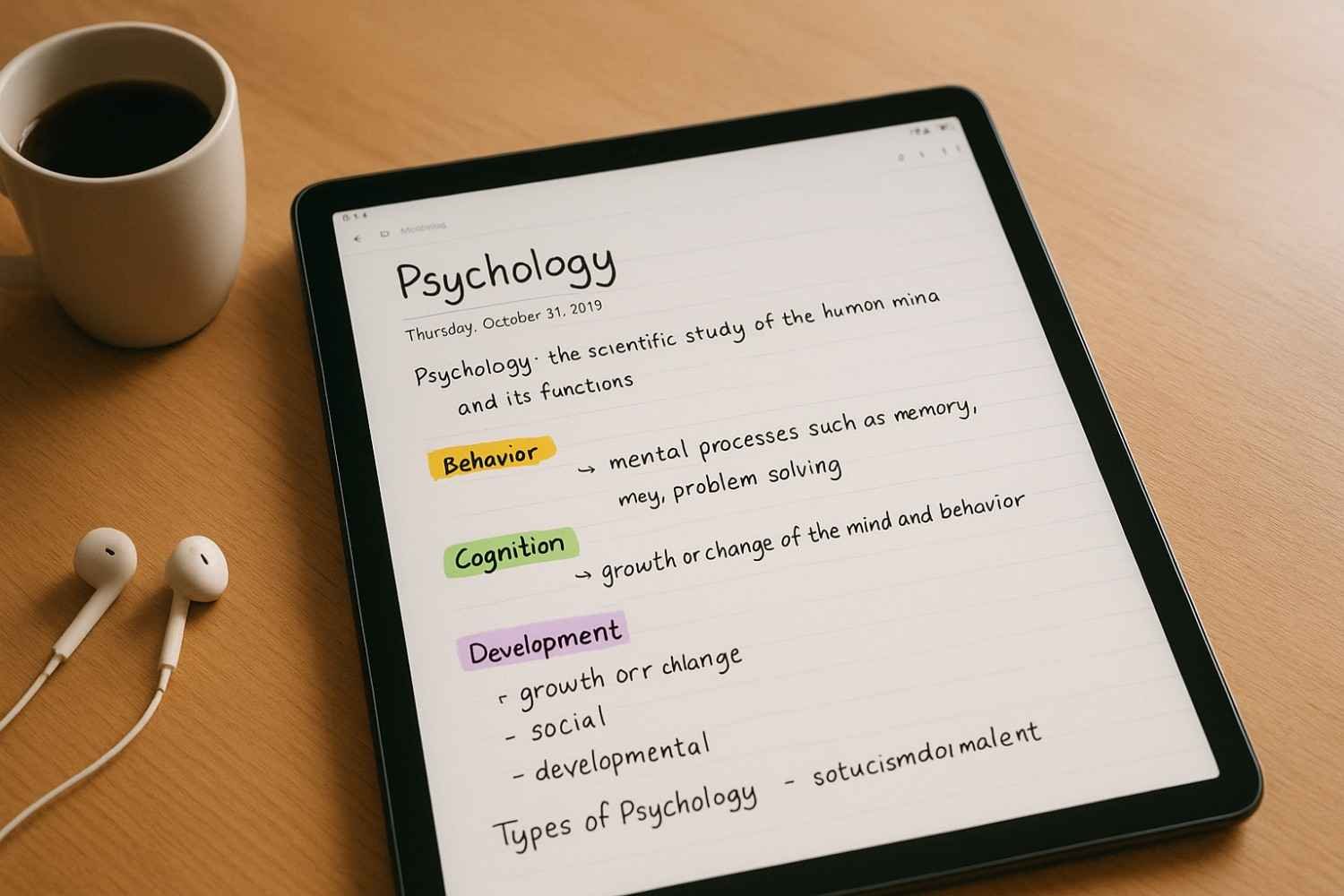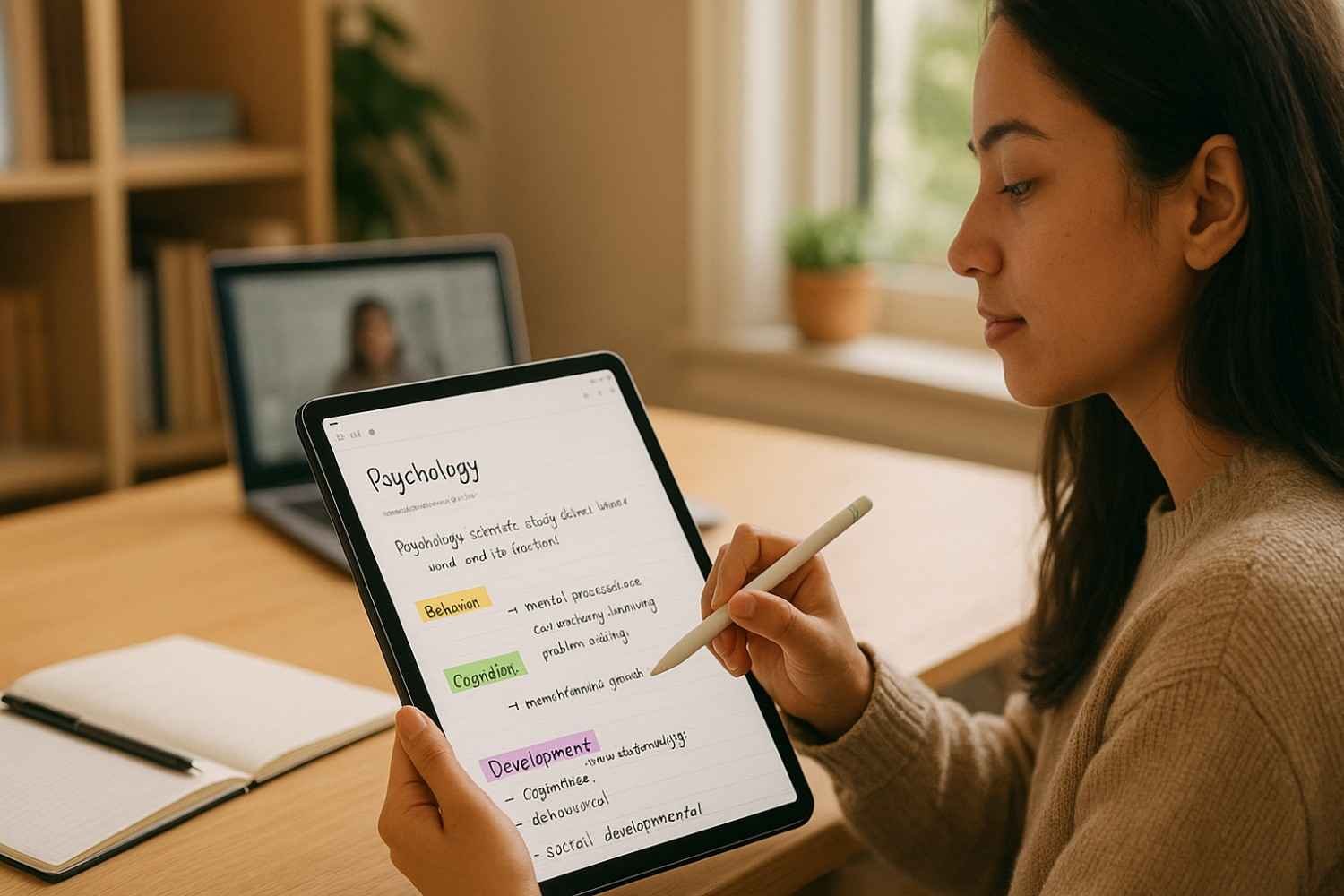If you are a student in 2025, you already know how important the right tools can be. From managing lecture notes to organizing study schedules and staying productive during exams, every little hack matters. The good news? There are plenty of free tools for students that can make your life so much easier. I’ve personally used many of these tools during my academic years, and trust me—they are game changers.
- Why Students Need the Right Tools
- 1. Google Keep – For Quick Notes & Checklists
- 2. Notion – All-in-One Student Workspace
- 3. Microsoft OneNote – Perfect for Detailed Notes
- 4. Grammarly – For Error-Free Writing
- 5. Forest – Stay Focused
- 6. Quizlet – Best for Revision
- 7. Evernote – Classic Note Organizer
- Comparison Table of Best Free Tools for Students
- FAQs
- Final Thoughts
In this guide, I’m going to share the best free tools for students that cover note-taking, study help, and productivity. Whether you are in school, college, or doing an online course, these tools will help you stay on top of everything without burning out.
Why Students Need the Right Tools
Let’s be honest, student life isn’t easy. Assignments pile up, exams sneak in, and distractions are everywhere (yes, I’m looking at you, social media). That’s where smart tools come in. They save time, reduce stress, and help you learn better. I remember when I switched from writing notes on random papers to using a digital note-taking app—it changed everything for me.

1. Google Keep – For Quick Notes & Checklists
Google Keep is one of my all-time favorite apps. Why? Because it’s simple yet powerful. You can create color-coded notes, checklists, voice notes, and even add reminders. If you’re someone who loves organizing thoughts quickly, this is for you.
Why I recommend it:
Back in my final year, I had to keep track of multiple project deadlines. Google Keep literally saved me by allowing me to set reminders for each task. No more last-minute panic!
Key Features:
Sync across devices
Add labels and colors
Voice-to-text for quick note-taking
2. Notion – All-in-One Student Workspace
If you want a tool that does everything—notes, tasks, calendars, and even collaborative projects—Notion is your best friend. It’s completely customizable, so you can design your own study dashboard.
Pro Tip:
I used Notion to create a daily study tracker where I could check off subjects as I finished them. It kept me motivated and consistent.
Key Features:
Pre-made templates for students
Organize notes, tasks, and goals in one place
Share pages with friends for group projects
3. Microsoft OneNote – Perfect for Detailed Notes
OneNote is like a digital notebook. If you like to write detailed notes, add diagrams, or organize subjects like a real notebook, this one is for you. It’s free for students with an email ID.
Why it’s amazing:
When I prepared for competitive exams, OneNote’s section-based layout helped me keep notes for different topics neatly organized.
Key Features:
Add handwritten notes with a stylus
Organize subjects into sections
Sync across devices
4. Grammarly – For Error-Free Writing
Assignments, essays, emails—writing is everywhere in a student’s life. Grammarly helps you write better, fix grammar mistakes, and improve clarity. It’s like having an English teacher always by your side.
My experience:
Once, I had a major assignment submission, and Grammarly literally saved me from embarrassing typos. The best part? It even suggests better sentence structure.
Key Features:
Free grammar and spelling checker
Tone suggestions
Works with Google Docs, MS Word, and browsers
5. Forest – Stay Focused
If your phone is your biggest distraction, Forest will help. It uses gamification to keep you focused. When you start a study session, you plant a virtual tree. If you leave the app, the tree dies. It sounds silly, but it works!
Personal tip:
I used Forest during my exam prep to block social media. Watching my digital forest grow was weirdly satisfying.
Key Features:
Focus timer
Tracks your study time
Helps build discipline

6. Quizlet – Best for Revision
If you’re tired of reading boring notes, Quizlet turns your study material into flashcards and quizzes. It’s perfect for quick revision before exams.
Key Features:
Create your own flashcards
Access study sets shared by others
Practice tests and games
7. Evernote – Classic Note Organizer
Evernote is a veteran in the note-taking game, and for good reason. It’s excellent for long-form notes, PDF storage, and even clipping articles from the web.
When to use it:
If you’re doing research for projects, Evernote helps you organize everything in one place.
Comparison Table of Best Free Tools for Students
| Tool | Best For | Why Use It |
|---|---|---|
| Google Keep | Quick notes & lists | Simple and lightweight |
| Notion | All-in-one planning | Organize notes, tasks, and schedules |
| OneNote | Detailed note-taking | Great for subjects and diagrams |
| Grammarly | Writing help | Avoid grammar mistakes |
| Forest | Focus & productivity | Beat distractions with a fun approach |
| Quizlet | Quick revision | Flashcards and practice tests |
| Evernote | Research & storage | Store PDFs, articles, and documents |
Read also: How to Free Up Space on Your Phone Without Deleting Photos
Read also: Top Android Automation Tricks with Google Assistant in 2025
FAQs
1. Are these tools completely free?
Most of them have free versions that are more than enough for students. Premium versions exist, but you don’t need them unless you want advanced features.
2. Which app is best for taking quick notes?
Google Keep is the fastest and easiest for quick notes and reminders.
3. Can I use these tools offline?
Yes, apps like OneNote and Notion offer offline access once synced.
Final Thoughts
Choosing the right tools can make your student life stress-free and more productive. Whether you want quick notes, detailed study plans, or just a way to stay focused, these apps will help you. I personally recommend starting with Google Keep and Notion and slowly adding others as needed.
So, which tool are you excited to try first? Drop a comment below and let me know.
